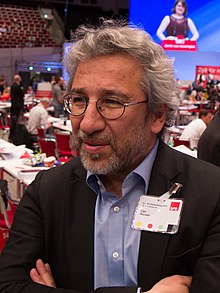Cumhuriyet is the oldest up-market Turkish daily newspaper. It has been described as "the most important independent public interest newspaper in contemporary Turkey". The newspaper was awarded the Freedom of Press Prize by Reporters Without Borders in 2015 and the Alternative Nobel Prize in 2016. It is considered Turkey's newspaper of record. It has been known for its stance of publishing anti-Islamist titles and news at least since the 1960s.

Yunus Nadi Abalıoğlu was a renowned Turkish journalist and the founder of the newspaper Cumhuriyet. He was known to be a sympathizer of the Nazi regime before the war, as he published many antisemitic propaganda articles praising Adolf Hitler.

Milliyet is a daily newspaper published in Istanbul, Turkey.
Radikal was a daily liberal Turkish language newspaper, published in Istanbul. From 1996 it was published by Aydın Doğan's Doğan Media Group. Although Radikal did not endorse a particular political alignment, it was generally considered by the public as a social liberal newspaper. Despite only having a circulation of around 25,000, it was considered one of the most influential Turkish newspapers.
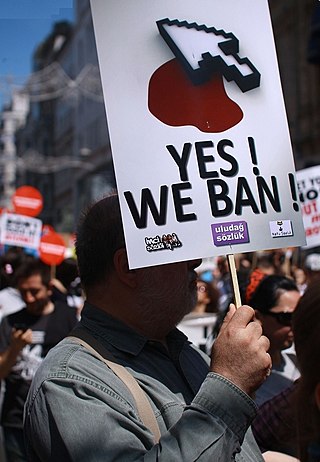
Censorship in Turkey is regulated by domestic and international legislation, the latter taking precedence over domestic law, according to Article 90 of the Constitution of Turkey.
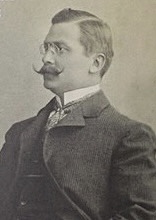
Ali Kemal Bey was a Turkish journalist, writer, poet, and liberal politician. He was Minister of the Interior for some three months in the government of Damat Ferid Pasha, the Grand Vizier of the Ottoman Empire. In the weeks following the Turkish victory in the Greco-Turkish War, he was lynched by Nureddin Pasha's paramilitary officers for his opposition to the Turkish National Movement.
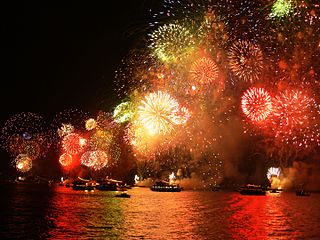
Republic Day is a public holiday in Turkey commemorating the proclamation of the Republic of Turkey, on 29 October 1923. The annual celebrations start at 1:00 pm on 28 October and continue for 35 hours.

Mustafa is a 2008 Turkish biographical documentary about Mustafa Kemal Atatürk, the founder and first president of the Republic of Turkey, which was written and directed by Can Dündar. The film, which controversially concentrates on Atatürk's personal life, is the first documentary covering Atatürk's life from his early years to his death. It was released on Republic Day, 2008, to coincide with the 85th anniversary of the foundation of the Turkish Republic.
Mersin İdmanyurdu Sports Club; located in Mersin, east Mediterranean coast of Turkey in 1973–74. The 1973–74 season was the sixth season of Mersin İdmanyurdu (MİY) football team in Turkish First Football League, the first level division in Turkey. They have relegated to second division at the end of the season.

Mustafa Ali Balbay is a journalist, writer and former Turkish MP. As the main political correspondent in Ankara for the left-wing Kemalist daily newspaper Cumhuriyet, he wrote a regular column called Gözlem which he took over from the prominent investigative journalist Ugur Mumcu, who was assassinated in 1993. Balbay was arrested on March 5, 2009 as an Ergenekon suspect in the Odatv case, and in August 2009 he was sentenced to 34 years and eight months.
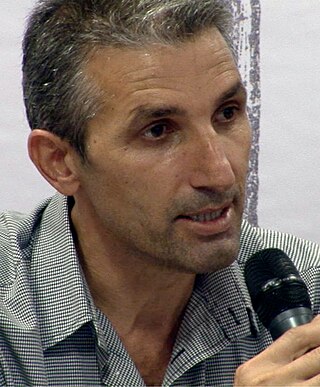
Nedim Şener is a Turkish writer and journalist who has written for the Milliyet and Posta newspapers. He has received a number of journalism awards, including the Turkish Journalists' Association Press Freedom Award, the International Press Institute's World Press Freedom Heroes award, and PEN Freedom of Expression Award. He is particularly known for his 2009 book on the assassination of Hrant Dink, which showed the role of Turkish security. He is under indictment in the Odatv case of the Ergenekon trials because, he believes, his 2009 book alleged that police officers responsible for the Ergenekon investigation were responsible for the Dink murder.
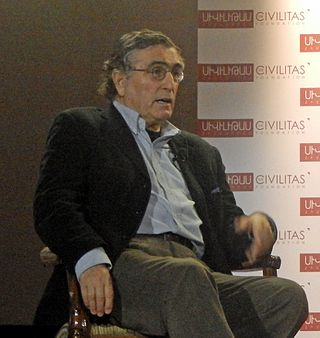
Hasan Cemal is a Turkish journalist and writer. He was the editor of Cumhuriyet from 1981 to 1992, and of Sabah from 1992 to 1998. In 2013 he resigned from the Milliyet newspaper after Prime Minister Recep Tayyip Erdoğan had criticised his article supporting Milliyet's publication of minutes of a parliamentary visit to Abdullah Öcalan, and Milliyet suspended him and refused to publish his returning column.
Events in the year 1927 in Turkey.
The 2014 National Intelligence Organisation scandal, is a military political scandal regarding the role of Turkish National Intelligence Organisation (MİT) in supplying weapons to neighboring Syria during the Syrian Civil War.

Erdem Gül is a Turkish politician serving as the current Mayor of Princes' Islands since 2019. He was the chief of the Ankara bureau of Turkish secularist newspaper Cumhuriyet between 2010 and 2018. He was arrested in November 2015 after his newspaper published footage showing the National Intelligence Organization of Turkey (MİT) sending weapons to Syrian Islamist fighters.
Turkey's media purge after the failed coup d'état on July 15, 2016 resulted in the shutdown of at least 131 media outlets and the arrest of 117 journalists – at least 35 of whom have been indicted for "membership in a terror group".
İsmet Kür was a Turkish educator, journalist, columnist and writer of mainly children's literature. Her writings included children's stories, novels, memoirs, short story, poems, and non-fiction. As a journalist, she worked at the BBC World Service, Cumhuriyet, Barış, and Yeni İstanbul. She also provided programming at Ankara Radio, TRT, and Bayrak.

Zekeriya Sertel, also known as Mehmet Zekeriya Sertel, (1890–1980) was a Turkish journalist. He is the first director of state press department and founder and editor of various periodicals. From 1950 to 1980 Sertel lived in exile.
Yurt Gazetesi is a national daily newspaper and website published in Turkey. It started broadcasting on January 29, 2012. The paper is owned by former Republican People's Party politician Durdu Özbolat. The editor-in-chief of the newspaper is Bilal Başer and its Istanbul representative is Abdullah Ağırkan.
